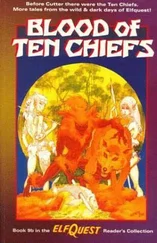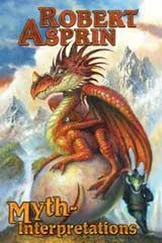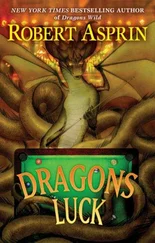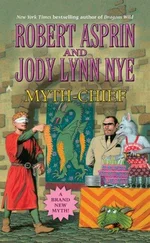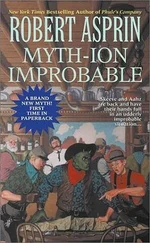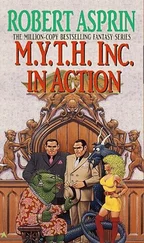“You’ve got to get out more, Grifter,” Jerome told him, picking up on the cue. “I shouldn’t have told you about phoning out for food. You’ve been living on ho-hum junk food just like you used to up in Ann Arbor. New Orleans is a prime dining town. It’s almost impossible to get a bad meal unless you’re stupid enough to eat a Lucky Dog. Places that don’t have good food and big helpings don’t last long down here.”
A figure emerged from the fog, shuffling toward them. The reminder of the George still fresh in his mind, Griffen eyed it suspiciously for a moment, then recognized it. It was one of the street people who seemed to exist by begging money from tourists. The hair was so short and the face so wrinkled that, with its body wrapped in a shapeless jacket, for a while he had been unable to tell if it was a man or a woman. He had always brushed off advances in the past and got ready to do it again.
“Is that you, Mr. Jerome?” the figure said. “Praise Jesus. I was hopin’ to see you tonight.”
“How you doing, Babe,” Jerome said, coming to a stop. “You liking this cold weather we’ve got now?”
“Oh, I love it,” the beggar said. “Mr. Jerome, can you help me out a little? I just need another seventy-five cents to get into the shelter tonight.”
Her voice took on a slight whine, and she glanced around as she spoke. The police did not take kindly to beggars who bothered tourists in the Quarter.
“Sure, Babe,” Jerome said, passing her a bill. Griffen caught sight of the corner of the bill, and it was a five. “But you watch out for yourself now. Hear? There are folks out that will take that away from you if you give ’em half a chance.”
“Praise Jesus. Thank you, Mr. Jerome,” the lady said, backing away with a smile. “You have a nice night now. You and all your friends there.”
The fog swallowed her up as though she had never been there.
“Why do you do that, Jerome?” Griffen said.
“Do what?”
“Give money to the street people,” Griffen clarified. “I’ve seen you do it a dozen times.”
Jerome was silent for a few moments.
“Have you ever been hungry a single day of your life, Grifter?” he said finally, in a soft voice.
Griffen hadn’t, but fought off the moment of guilt.
“That isn’t the point,” he said firmly, almost as much to himself as to Jerome. “I mean, I’ve always known you as a savvy guy. Somebody would have to be pretty sharp to put one over on you, and I’d be willing to bet they never caught you with the same scam twice.”
Jerome flashed a smile.
“I like to think that’s true.”
“So how come you’re willing to give away good money just because someone walks up to you on the street and just asks for it?” Griffen pressed. “I mean, I don’t want to sound like a hard case, but somebody down here told me that begging down here is a real racket. That some of these supposed beggars pull down a good buck from sympathetic tourists. I hear some of them have their own cars that they drive down to the Quarter and park on side streets before putting on their homeless act. Aren’t there all sorts of government programs to help the homeless that our taxes are paying for? Why should we reach into our pockets again to pay for their booze or drug habits?”
“Nice to know you don’t want to sound like a hard case, Big Brother,” Valerie said sarcastically.
“Hey. That’s why I’m asking,” Griffen protested. “I know Jerome, and I know he usually has a reason for whatever he does. When I see him do something that doesn’t seem to make sense, I ask him. That’s one of the ways I learn things. Okay?”
They all walked along in silence for a while, and Griffen wondered not only if Jerome was going to ignore the question, but if he had inadvertently put a damper on the mood of the whole evening.
“I’ll tell you, Grifter,” Jerome said at last. “One of the legends…stories they tell in voodoo is how sometimes one of the gods…Changul, I think…takes on the form of a beggar and walks among normal people to test their charity. It’s a way of seeing whether people really feel compassion, or if they just pay lip service to it because the doctrine demands it.”
Griffen didn’t know what he had expected as an answer, but this one caught him by surprise.
“Come to think of it,” he said, “I think there’s something similar in Norse mythology. I think it’s Odin who is supposed to disguise himself as a…”
He came to an abrupt halt.
“Wait a minute, Jerome. Are you saying that you believe in voodoo? That you’re a practitioner?”
“Why?” Jerome said, raising an eyebrow. “Would that be a problem?”
“Well…no…I don’t know,” Griffen managed. “I guess I never gave it much thought. We’ve never talked much about religion. I guess I just never thought of you as a religious person.”
“I’d have to say you’re pretty much right on that one,” Jerome said. “Just keep in mind the difference between religion and spirituality.”
Griffen shook his head.
“I’m afraid you’re going to have to clarify that one a bit, Jerome,” he said. “I’m not sure I’m clear on the difference.”
“That’s two of us,” Valerie chimed in. “What are we talking about here?”
Jerome turned his head.
“You want to take a shot at this, Foxy Lady?” he said. “I’ve never been too good at explaining things.”
“There are a lot of very spiritual people around who are turned off by organized religions,” Lisa said. “They may be in tune with the world and believe deep down in a higher power or plan, but they are repelled by the ritualization that’s superimposed by so-called religions, particularly when the priesthood uses it to dabble in politics or for monetary gain.”
“I think it was John D. MacDonald in one of his Travis McGee novels,” Jerome said. “In it, the main character describes his view of organized religion as being marched in formation to look at a sunset.”
“That’s right,” Fox Lisa said. “For some, religion is going to church once a week and paying five dollars while paying lip service to things they don’t really believe in. For others…and I think both Jerome and I fall into this category…there are certain teachings that, while they may fall under the heading of religion, provide a code or a way of life. It’s not a matter of ‘practicing’ a religion, it’s living it day in and day out.”
“If you open yourself up to it,” Jerome said, “you’ll feel it. You know how, as each new religion gained domination, they would build their new temples on top of the places used by the old religions? That’s because there are certain focal points of energy in the world, and those who are sensitive can sense them. New Orleans in general, and the French Quarter specifically, is one of those kind of places. It practically vibrates with energy, and different people react to it differently. That’s why it’s always been a gathering point for creative people who express themselves with art or music…or theater. It’s also why we have so many people who are strongly religious or spiritual…or both.”
“Is that why everything down here is divided into parishes instead of districts?” Valerie said. “I wondered about that.”
“That’s part of it,” Jerome said, “but that’s only been because Christianity or Catholicism has been the dominant religion here for a long time. Another thing you can look at is Mardi Gras. Around the country, people think of Mardi Gras as the world’s biggest open party that runs for weeks with everyone getting drunk and flashing for beads. They miss completely that it’s a carnival and celebration for the start of Lent. I will guarantee you that on Ash Wednesday, most of the locals you’ve seen partying and working triples manning the bars and restaurants will be crowded into that cathedral right there and several dozen other churches around town for Mass.”
Читать дальше



